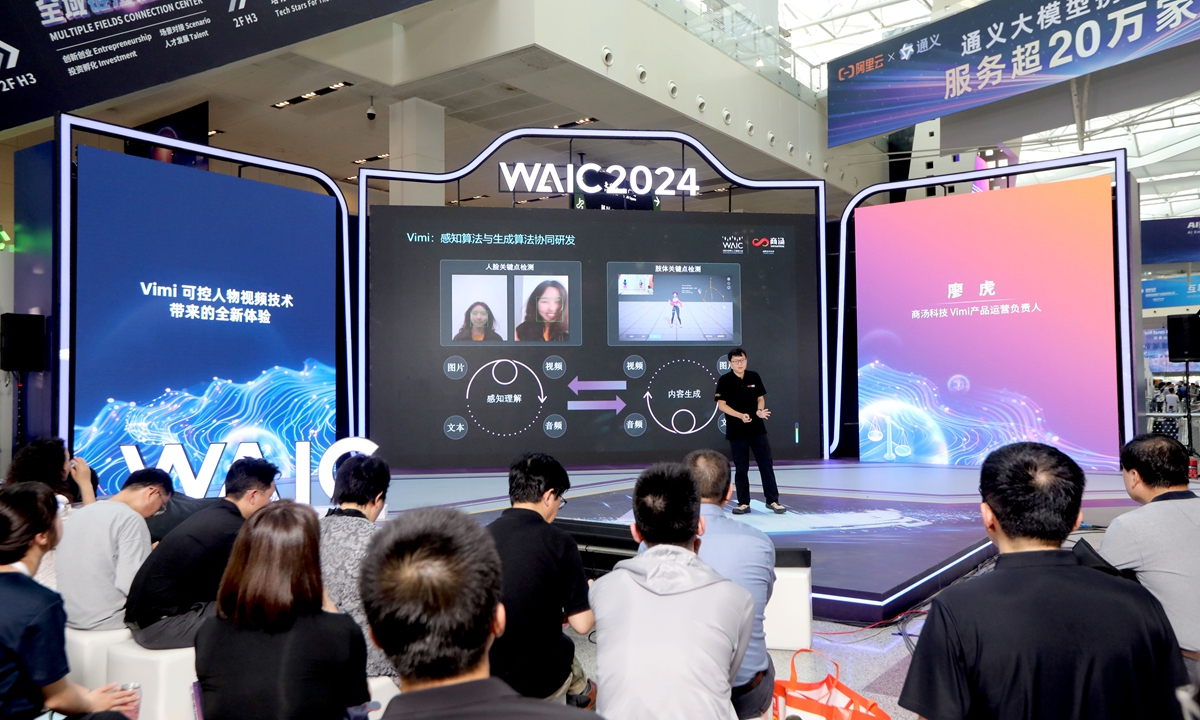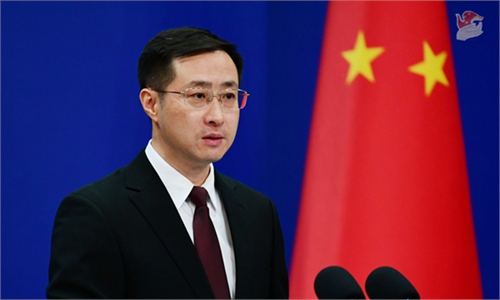China advocates global collaboration on AI innovation, opposes ‘decoupling’ attempt: FM

A representative with Chinese AI software company SenseTime shares its newly developed “Vimi,” the world’s first AI controllable character video generation product, at WAIC 2024 in Shanghai on July 4, 2024. Photo: Chen Xia/GT
Innovation is the hallmark of China's economy and a powerful driver of global economic growth, Chinese Ministry of Foreign Affairs (MFA) said on Thursday. The Ministry credited Chinese firms' rapid AI innovation to proactive engagement in international innovation cooperation, and expressed firm opposition against the "decoupling" attempt and malicious competition.
During the World Artificial Intelligence Conference 2024 (WAIC 2024), Chinese AI firms have showcased a flurry of large language model application scenarios, including generating high-definition videos, identifying farmland plots and crop distributions, and analyzing image and text data, said Lin Jian, the MFA spokesperson.
The WAIC 2024 has revealed the potential of innovative technologies to empower various industries.
Manufacturing and technologies powered by Chinese innovation are not only meeting domestic demands but also enriching global market supply, contributing to the green transformation of the global economy and the development of emerging industries, Lin noted.
China's role in driving global innovation is becoming increasingly significant. A total of 11 Chinese companies were listed in the World Economic Forum's 2024 Technology Pioneers list, the second most by any country. While the forum's Global Lighthouse Network initiative also included 62 Chinese firms, which was the highest number globally, Lin said.
The rapid development of China's AI technology is evident, with 117 large language models officially registered by March 2024, according to the Cyberspace Administration of China.
At WAIC 2024, a diverse range of specialized large language models tailored to specific industries have flourished, showcasing their capabilities across sectors like industrial manufacturing, healthcare, meteorology, education, and scientific research.
Moreover, China is calling for close global cooperation on innovation to foster collective growth. "Innovation is not the domain of a single country or company. New challenges require collective deliberation and new achievements should be shared," Lin stated, emphasizing that innovation cooperation should be a platform for mutual success and growth among nations, but not a zero-sum game of malignant competition. He added that strategies for "decoupling" and building "high fences" are short-sighted and ultimately self-defeating.
China has established 30 national manufacturing innovation centers and has engaged in green energy projects with over 100 countries and regions, creating vivid examples of how innovative technologies support green development, Lin said.
In response to the significant opportunities presented by a new era of technological and industrial transformation, China will continue to accelerate high-quality development and engage in innovation cooperation with countries worldwide, providing robust support for the global economy and contributing to global development, Lin said.
China is also advancing industrial automation, with the Ministry of Industry and Information Technology reporting that the country now accounts for over 50 percent of global industrial robot installations. And, industrial internet in China now covers all major industrial categories, empowering the new industrialization with artificial intelligence, fostering 421 national intelligent manufacturing demonstration factories.



